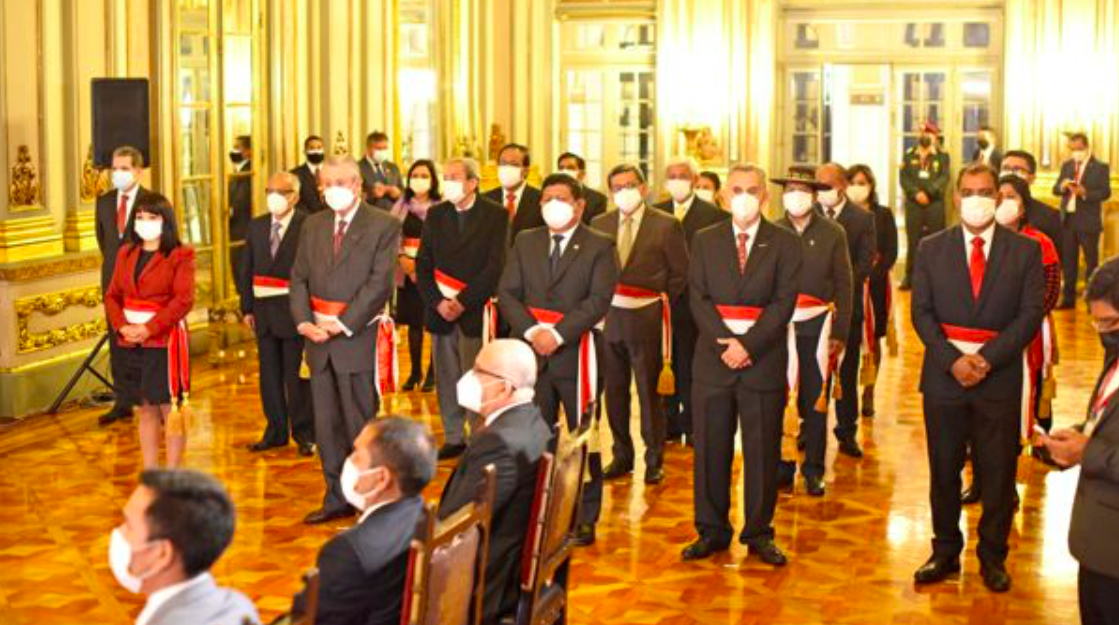RIO DE JANEIRO, BRAZIL – Pedro Castillo’s first five months at the helm of Peru have been far from the tranquility that the country was looking for with the last elections held between April and June because there have already been 12 ministerial changes in less than half a year of government.
Castillo has had to face tireless opposition from the leading media groups, a Congress that despite being very divided has not hesitated to unite against him, and his party, Peru Libre, which has accused him of being lukewarm in his policies in the face of those who consider him a radical.
Read also: Check out our coverage on Peru
From the very beginning, suspicions of nepotism within his cabinet have arisen, with almost all of his ministers questioned for different reasons, either for their lack of experience to hold a position of such relevance, for having maintained alleged relations with terrorist groups, or for having incurred in irregularities of all kinds.

The last one to leave has been the former head of Education, Carlos Gallardo, still without a replacement in sight, who resigned a few days ago after being censured by the Congress due to the alleged leak of the teachers’ exams and for his relationship with Fenate, the teachers’ union founded by Castillo.
Before he occupied that same portfolio Juan Cadillo, relieved of the position by Castillo, as he said, through a WhatsApp message, he was one of the seven ministers who left last October 6 when Mirtha Vásquez took the reins of the cabinet after the resignation of a highly questioned Guido Bellido.
The first to have to leave office was Héctor Béjar. Castillo’s former head of Foreign Affairs resigned just a few weeks after being chosen to head the Peruvian diplomacy after the political and media pressures he received for some statements made in February 2021. He accused the Navy and the CIA of being responsible for terrorism.
After him came the Bellido, as mentioned earlier, who led Castillo’s government team for two months, enough time to deal with criticism from the opposition, which accused him of lack of preparation, and the Prosecutor’s Office, which opened a series of investigations against him for allegedly defending terrorism.
Bellido, for some the voice of the head of Perú Libre, Vladimir Cerrón, in that cabinet, threatened to dissolve the Congress if the agrarian reform was not approved, he clashed with Óscar Maúrtua, of Foreign Affairs, for his differences regarding Peru’s relations with Venezuela. Castillo had to publicly deny his statements about nationalizing some companies.
Among the most questioned was also the former Minister of Labor, Iber Maraví, who had to appear before Congress at the end of September to answer for the accusations that linked him to terrorist groups, a charge, on the other hand, recurrent on the part of the opposition against Castillo and his followers.
He did not achieve parliamentary endorsement and was replaced by Betssy Chávez in the Vásquez cabinet.
They were followed by the former Minister of the Interior, Juan Carrasco, questioned for an alleged intervention of the Police in the Directorate against Terrorism; Iván Quispe, head of the Ministry of Production; and the questioned Iván Merino, of Energies and Mines, who after Bellido’s departure had no place in Vásquez’s team, who also did not count on Ciro Gálvez, until then in Culture.
The other most notorious cases came with Vásquez already at the head of the cabinet. Luis Barranzuela, who had replaced Juan Carrasco as head of Interior, resigned on November 2 after it was revealed that he had held a party at his home, thus skipping the restrictions imposed by the pandemic.
However, in his resignation letter, he rejected “the false accusations” about him. He was replaced by Avelino Guillén.
The subsequent considerable controversy involved Walter Ayala, who was accused of pressure to force specific promotions in the Armed Forces. The Attorney General’s Office opened an investigation against him and against the Secretary-General of the Presidential Office, Bruno Pacheco, who resigned shortly after. President Castillo has been questioned as a witness.
His replacement was not exempt from controversy either, as Juan Carrasco, the former Interior Minister. Finally, and before Gallardo left the Ministry of Education, Roger Incio, barely a month at the head of Production, went his post to Jorge Prado.

